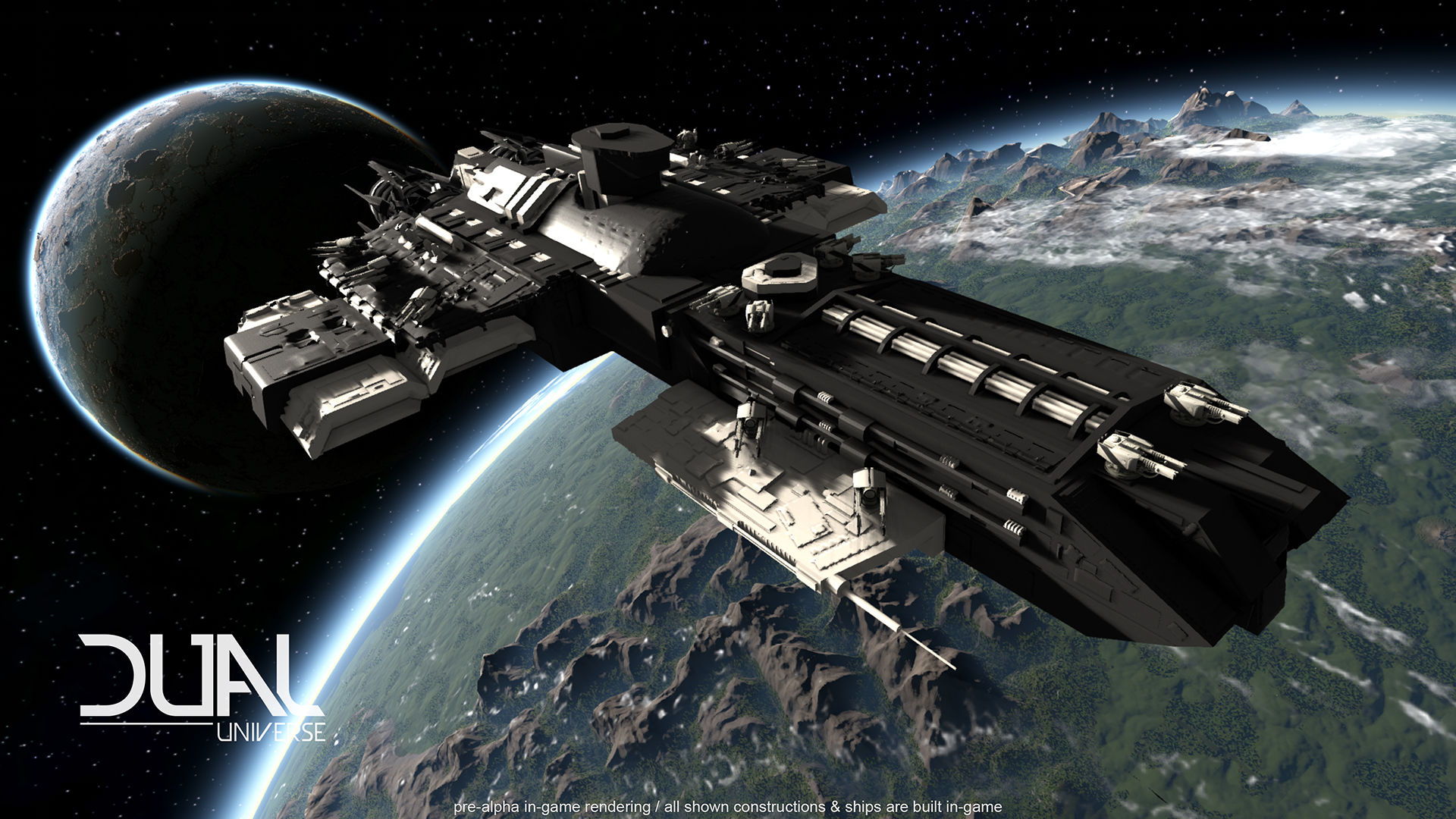Crazy-ambitious MMO Dual Universe wants you to build and destroy almost everything
Players will have access to a powerful editor that will enable them to build the universe as they see fit.
A new video released today by Dual Universe developer Novaquark takes a closer look at the voxel technology underpinning the game and explains how it will provide players the freedom to create and edit giant structures across a single-shard universe consisting of millions of planets.
Voxel technology has been around for ages, but Novaquark aims to get beyond their simple “cube-like aspect” in Dual Universe, to enable more flexibility in what players are able to create. The basic building blocks of the system are conventional shapes like a cube, a sphere, a cylinder, and a wedge, but each of them is actually composed of even smaller structures that enable objects to be rendered in sharp detail at varying distances. It's done through a system called “dual contouring” that has previously been used in games including Everquest Landmark.
“We push it a bit further by also allowing people to build structures of unlimited size that can be seen from very long distances by degrading automatically the level of details that are displayed,” Novaquark founder and president Jean-Christophe Baillie told me via email. “This is for example how planets, or large spaceships and space stations are rendered. We also make the voxel editor work in the context of a large-scale MMO, so that changes are made visible to all players who see them.”
The system will be scaled through the use of the studio's own “'level of detail' technology,” which Baillie says will render large objects at great distances in “very coarse detail,” and then fill them in as you approach. This will help keep the network load to a minimum, as only a limited amount of information is being sent and received, and data from previously-visited locations will be cached on your hard drive.

Maybe it's because I've spent too many years on the internet, but the ability to destroy as well as create in a single-shard game struck me as potentially problematic. Not everyone plays nicely with others, after all. But Baillie said that while Dual Universe is meant to be PvP, there will be several mechanisms in place that will keep it from descending into Mad Max-style anarchy: A 20 km safe zone around the Arkship spawn point, territories to enforce policies on given areas of planets, protection bubbles to create "artificial safe zones," market-driven limitations on the balance of power—economy is everything, even in a digital universe—and a bounty system were among the examples he listed.
“Ultimately, the alpha and the beta will also help us to improve several other mechanisms we have in mind. Note that not all of these mechanisms will make it to the initial release (they could come through scheduled game expansions), but we will pick the most important ones,” Baillie says. “The basic design principle here is to give powers and counter-powers, so that player communities can find their equilibrium in a bottom-up, non-centralized fashion.”
We had a closer look at Dual Universe earlier this month, and it sounds very promising but dauntingly ambitious—a mix that could work against it coming so soon after the disappointment of No Man's Sky. But Novaquark appears committed to taking it slowly—the current plan is to enter beta in the second half of 2017, and launch in full sometime in 2018—and, as we noted in our preview, to take a more transparent approach to development: to “communicate properly,” as Baillie put it. It's still very early, but so far, so good.
The biggest gaming news, reviews and hardware deals
Keep up to date with the most important stories and the best deals, as picked by the PC Gamer team.
Dual Universe is currently in the midst of a Kickstarter campaign that runs until October 11.

Andy has been gaming on PCs from the very beginning, starting as a youngster with text adventures and primitive action games on a cassette-based TRS80. From there he graduated to the glory days of Sierra Online adventures and Microprose sims, ran a local BBS, learned how to build PCs, and developed a longstanding love of RPGs, immersive sims, and shooters. He began writing videogame news in 2007 for The Escapist and somehow managed to avoid getting fired until 2014, when he joined the storied ranks of PC Gamer. He covers all aspects of the industry, from new game announcements and patch notes to legal disputes, Twitch beefs, esports, and Henry Cavill. Lots of Henry Cavill.


